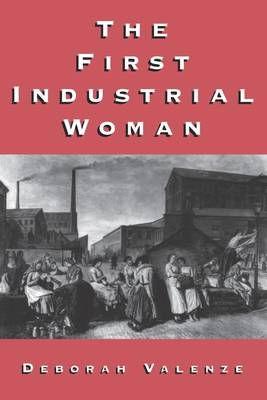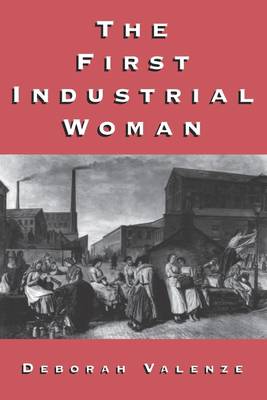
- Afhalen na 1 uur in een winkel met voorraad
- Gratis thuislevering in België vanaf € 30
- Ruim aanbod met 7 miljoen producten
- Afhalen na 1 uur in een winkel met voorraad
- Gratis thuislevering in België vanaf € 30
- Ruim aanbod met 7 miljoen producten
Zoeken
Omschrijving
Why study women and the industrial revolution? Deborah Valenze's groundbreaking reassessment of this classic problem in European history reminds us that questions of gender and work are at the center of our experience in the modern world.
Too often, the study of industrialization charts an inevitable and largely technological course. Valenze sets aside this approach in order to examine the underlying assumptions about gender and work that informed the transformation of English society, and in turn, our ideas about economic progress. How did England change from an agriculturally based nation, in which female labor played an active and acknowledged part, to an industrial power resting on a notion of male productivity? Through selective treatments of agriculture, spinning, and cottage industries, Valenze shows how the rise of values of productivity and rationality subordinated women of the working class and strengthened an emerging ethos of individualism. She also analyzes the influential ideas of Thomas Malthus, Hannah More, and other authors, whose publications reinforced these same tendencies in the early nineteenth century. In an elegant and compelling account, Valenze charts the birth of a new economic order resting on social and sexual hierarchies which remain a part of our contemporary lives.
Too often, the study of industrialization charts an inevitable and largely technological course. Valenze sets aside this approach in order to examine the underlying assumptions about gender and work that informed the transformation of English society, and in turn, our ideas about economic progress. How did England change from an agriculturally based nation, in which female labor played an active and acknowledged part, to an industrial power resting on a notion of male productivity? Through selective treatments of agriculture, spinning, and cottage industries, Valenze shows how the rise of values of productivity and rationality subordinated women of the working class and strengthened an emerging ethos of individualism. She also analyzes the influential ideas of Thomas Malthus, Hannah More, and other authors, whose publications reinforced these same tendencies in the early nineteenth century. In an elegant and compelling account, Valenze charts the birth of a new economic order resting on social and sexual hierarchies which remain a part of our contemporary lives.
Specificaties
Betrokkenen
- Auteur(s):
- Uitgeverij:
Inhoud
- Aantal bladzijden:
- 272
- Taal:
- Engels
Eigenschappen
- Productcode (EAN):
- 9780195089820
- Verschijningsdatum:
- 30/03/1995
- Uitvoering:
- Paperback
- Formaat:
- Trade paperback (VS)
- Afmetingen:
- 155 mm x 234 mm
- Gewicht:
- 371 g

Alleen bij Standaard Boekhandel
+ 400 punten op je klantenkaart van Standaard Boekhandel
Beoordelingen
We publiceren alleen reviews die voldoen aan de voorwaarden voor reviews. Bekijk onze voorwaarden voor reviews.











